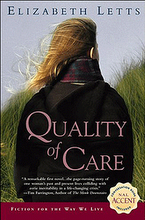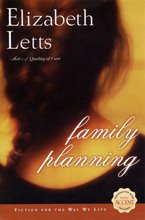The Bulletin of the Center for Children's Books-- April 1, 2008
Every Saturday night, young Nora's baba (father) cooks up a big pot of couscous using a special pot he brought with him from his native Morocco. One Saturday, Nora protests Baba's "no snacks before dinner" rule, saying she's "staaarving," which prompts Baba to tell her the story of a time in his youth when he was truly hungry. As his daily portion of bread shrank and the family's supply of butter disappeared, young Baba grey hungrier and hungrier, and his father left to seek work and food. To distract Baba from his hunger, his clever mother suggested each day that he go out by the road to wait for the "butter man." Though the butter man never actually appeared, there was plenty to watch by the roadside, and eventually Baba's father returned home with food. As the tale is finished and Nora's family sits down to eat, their experience is quite different ("We eat and eat until we are full, and there is always some left to save for our lunch tomorrow"), but there's a nicely subtle parallel between the two generations of parents trying to distract their hungry offspring. Descriptive language and avoidance of didacticism give Nora's and Baba's contrasting stories genuine emotional impact. The gradually shrinking amount of bread makes Baba's hunger palpable: "One day the piece of bread my mother had given me was so small I could close my fingers all the way around it, and it was so hard that when bread was plenty, I would have tossed it to the cow to eat." Essakalli's blocky folk art gouache paintings are delicately accented with patterns of dots and dashes, with warm tones of browns, golds, reds, and turquoises predominating. Nora and the adult Baba are situated in contemporary times by their modern clothing (Baba sports attractive red tennies) and hairstyles, which contrasts with the more distanced depictions of the Morocco landscape and people of Baba's childhood. Though Baba's depiction of hunger will, one hopes, be unfamiliar to most kids who see this book, it obviously still exists in many places, and this might be a fine way to introduce that problem to youngsters who, like Nora, frequently claim to be "staaarving." An author's note explains more about Morocco and the Berber people, and a glossary is included. JH
Friday, March 21, 2008
Subscribe to:
Posts (Atom)








